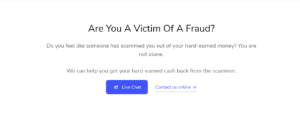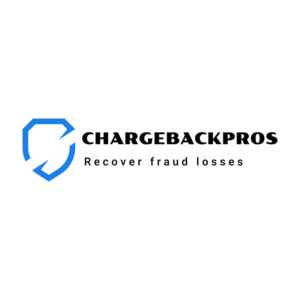The emergence of cryptocurrencies to the forefront of finance as a prominent investment vehicle is no surprise to anybody. Their revolutionary use cases drive investor confidence, and the need to acquire these decentralized assets is shooting up.
Moreover, sufficient liquidity required for the burgeoning demand is being maintained by centralized exchanges that often act as the bridge between the crypto world and the investor taking their first steps into this nascent finance segment.
However, the newness of cryptocurrency and the lack of clear legalities surrounding this asset class have allowed cryptocurrency platforms and projects in the past to indulge in risky practices that ultimately put the users at risk. These factors can hinder many investors as they introduce great uncertainty to their investments in an already volatile asset class.
To bring some form of stability to the dealings of the cryptocurrency world, crypto exchanges adhering to regulations and guidelines set by regulatory bodies are appearing and becoming distinguished. Therefore, these platforms are legally bound to follow transparent practices that protect user investments at all costs – making it safer and more reliable for users who want to deal with crypto assets.
With regulations in place, crypto exchanges are accountable for the funds of all users and act in manners that do not affect the stability of financial systems.
To avoid landing in rough waters legally while providing decent services simultaneously, top crypto exchanges take advanced security measures to protect the interests of their users.
These security implementations can define the success of exchanges and the volume of funds moving through them. Robust storage infrastructures, secure transaction processes, Know Your Customer (KYC), and Anti Money Laundering (AML) protocols preventing the movement of illicit funds are all essential security measures incorporated by the largest cryptocurrency exchanges in the world.
Therefore, it is important to keep in mind the security features adopted by crypto exchanges while ranking them.
1. Binance

Binance, a household name in the cryptocurrency community, is one of the most popular crypto exchanges presently witnessing the highest daily trade volumes, according to CoinMarketCap.
This exchange currently boasts a whopping 388 crypto coins and tokens that can be exchanged using any of the 46 fiat currencies supported on the platform.
Binance has gained regulatory approval in locations like France, Bahrain, Abu Dhabi, and Dubai and is looking to obtain licenses in several other jurisdictions like Germany and the UK. These approvals take work, of course.
The exchange seeks to gain them by adopting measures – safeguarding user investments and preventing illegal activities – which are in tune with the strict orders set forth by the regulators.
The exchange implements secure cold offline storage in multisig setups where it stores most of the user funds it handles. Transactions require the withdrawal of funds from cold storage, a process monitored closely with the help of a Chainalysis-integrated product called Know Your Transaction (KYT).
KYT helps Binance comply with regulations by preventing transactions with blacklisted wallets, looking for high-risk activities associated with accounts, and more. In addition, transactions from user wallets can only be initiated to whitelisted wallets and IP addresses.
Binance also implements two-factor authentication for initiating any transaction from user accounts and changes the accounts’ credentials. As a result, user accounts are highly secure, and all KYC data submitted to create these accounts are encrypted in storage and while in transit.
2. Coinbase

Coinbase is arguably the biggest and most popular cryptocurrency exchange. It is known for its stringent AML checks that involve asset and blockchain protocol reviews before they are listed on the exchange.
In addition, by looking into factors like the level of decentralization, the consensus mechanism adopted, and the promoted use cases, the exchange weeds out tokens that can likely be used for laundering illegally obtained funds.
Coinbase conducts in-depth AML checks with the help of Elliptic’s crypto transaction monitoring services. Moreover, the platform’s self-developed Coinbase Cloud KYT tool helps add the edge required to stay ahead of cybercriminals and remain compliant, especially for a platform this massive.
Despite the stringent checks, Coinbase lists over two hundred cryptocurrencies – a stark increase from its humble beginnings. Coinbase was founded in 2012 as a platform to make buying and selling Bitcoin convenient. However, the exchange has become massive over the years, acquiring licenses in various countries like the USA, the UK, and Canada.
The liquidity maintained for the massive amount of cryptocurrencies listed makes the exchange suitable for most investors’ altcoin needs. In addition, Coinbase’s secure storage and transaction infrastructures protect the tokens that users acquire and store on their Coinbase wallets.
Beyond two-factor authentications and account locking facilities, Coinbase allows users to choose to add co-signers to enhance the security of their funds in a feature called Coinbase Vault. Users can add the funds they choose to secure into the vault, which only allows co-signed transactions within 24 hours of their initiation.
3. FTX

One of the fastest growing entries on the list, FTX, like its counterpart Binance offers over three-hundred crypto coins and tokens which users can interact with and harness to generate profits with innovative tools, some of which are specific to this platform. Futures, leveraged tokens, options, MOVE, and spot markets are various instruments offered by FTX that distinguish it from other exchanges.
The FTX exchange is regulated by the Securities Commission of the Bahamas, with which it can offer various services to its users without the worries of being sanctioned. However, the exchange does not directly cater to US cryptocurrency users. In the US, FTX operates as a different entity known as FTX US, which offers users fewer cryptos to interact with – about twenty different coins and tokens.
User interaction in the form of transactions initiated on the platform is monitored closely with the help of a Chainalysis-integrated product called Know Your Transaction (KYT).
KYT helps FTX comply with regulations by preventing transactions with blacklisted wallets, looking for high-risk activities associated with accounts, and more. Moreover, whitelisting trusted wallets is mandated for users to transact with others.
FTX also allows users to share their accounts securely with others by creating multiple logins with varying levels of access. These sub-accounts can be created for read-only purposes or limited fund withdrawal purposes.
4. Kraken

An older cryptocurrency exchange, Kraken began its operations in 2013 to facilitate the seamless exchange of Bitcoin.
With time, Kraken has become an immensely popular exchange that most crypto users are aware of, at the least. The platform now lists over 230 cryptocurrencies and is known to experience massive trade volumes daily.
The exchange’s popularity comes because of its regulated status. Their local regulatory bodies regulate Kraken in the US by FinCen and other areas like Canada and Europe. Its long presence in the crypto sphere offering secure services and regulatory compliances, makes Kraken a highly trustworthy platform.
While Kraken is equipped with essential security features like cold storage, two-factor authentication, encrypted communications, and more, the feature that stands out the most is how the platform secures its servers.
As described by Kraken, their servers are secured in cages guarded by gunmen around the clock. In addition, Kraken follows stringent measures to keep malicious code from entering its infrastructure, preventing attacks from breaching the exchange’s software.
5. Gemini

Gemini is one of the first cryptocurrency exchanges to push for regulatory compliance and adhere to strong security measures, things cryptocurrency platforms didn’t seek to do at the time because of the need to follow governmental directives.
Through successful marketing campaigns, the exchange also took it upon itself to educate users about the need for regulations in the crypto sphere.
Gemini is regulated by various bodies in different regions but was the first to meet the standards set by the NYDFS (New York State Department of Financial Services). Most exchanges tend to block users from New York since gaining a license from this regulator is arduous for platforms dealing with nascent financial instruments.
Gemini follows stringent protocols to safeguard user funds and detect suspicious activities on the platform. It integrates advanced machine learning algorithms for such purposes as reporting fraudulent and illicit activities.
The platform uses Nasdaq’s SMART Market Surveillance to monitor suspicious trades and market manipulation. Additionally, Gemini utilizes Chainalysis’ KYT tool to monitor every platform transaction.
This exchange also implements strict storage measures like utilizing secure cold wallet devices called Hardware Security Modules (HSMs) in multisig configurations distributed around the globe to store most of the user funds.
In addition, of course, user accounts are secured via whitelisting and two-factor authentication, among many other features, observed in all popular crypto exchanges.
6. Bitstamp

Bitstamp is one of the first exchanges to allow users to buy and sell Bitcoin. It was founded in 2011 and has been notable for its simplistic yet powerful user interface.
The exchange charges fees that are economical compared to other popular exchanges. These factors collectively make Bitstamp a go-to for new investors looking to dip their toes into the world of cryptocurrencies.
Bitstamp offers 65 different cryptocurrencies, a decent range for newcomers to this financial segment.
The exchange is licensed to allow users to interact with cryptocurrencies on the platform in the European Union and takes steps to meet the stringent AML and CTF (Counter-Terrorist Financing) obligations set forth by the regulator.
Bitstamp is known to strictly monitor user activity, using algorithms from industry favorite Chainalysis KYT and manual compliance teams to check for shady ongoings on the platform.
Bitstamp is known to strictly monitor user activity, using algorithms and manual compliance teams to check for shady ongoings on the platform. The exchange also implements cold storage, storing all user funds and safeguarding them from network vulnerabilities.
7. Coincheck

Coincheck, Japan’s biggest cryptocurrency exchange, is a prominent force in the global exchange scene. The platform is always seen competing with more household names regarding trade volumes and the number of platform visitors.
In addition, the exchange has a limited listing of cryptocurrencies and is preferred by investors who stick to buying and selling popular cryptocurrencies like Bitcoin, Ethereum, and Ripple.
Coincheck was previously involved in a high-profile hack resulting in losses to the tune of $500 million. The exchange has turned around since and has registered with the Japanese regulatory body FSA, complying with its standards. It mandates KYC procedures for all users and bars illicit activities according to its strict AML policies, followed by reporting to relevant authorities.
The presence of compliance teams working behind the scenes prevents the movement of funds gathered by unlawful means through the platform.
Furthermore, the exchange implements cold storage for all user assets mandated by the FSA and segregates it from enterprise-owned assets. Users can therefore withdraw their funds in an unfortunate situation of platform insolvency.
8. bitFlyer

bitFlyer is another Japanese cryptocurrency exchange known for its extraordinary security measures, as it is yet to witness a hack or major loss of funds. What bitFlyer does right is that it implements essential security features at the user end, like mandatory passwords with good strength, two-factor authentication, and account locking when suspicious activity is detected.
While the combination of these basic features makes it hard for hackers to attack users while implemented accurately, bitFlyer also employs additional security measures at the platform level as the FSA regulates it.
For example, the platform performs an “anti-social force check” on all its users from external databases to identify fraudulent individuals and groups trying to access the exchange’s services to launder money and defraud other users.
Like its local counterparts, it utilizes FSA-mandated cold storage to safeguard all user assets yet to be breached. Thanks to its security features, the exchange’s positive reputation makes it experience Japan’s largest Bitcoin trade volumes.
9. Phemex

Phemex, a newer cryptocurrency exchange, is rising to prominence, with over 5 million users on the platform since its inception in 2019. The exchange has already obtained licenses to operate in different parts of the world and is regulated by FinCen in the US.
The exchange offers 213 cryptocurrencies while implementing highly secure measures for users to transact with these digital currencies safely. Phemex utilizes super-fast trading engines, allowing users to transact their cryptocurrencies during drastic market movements known to cause huge losses.
Two-factor authentications for all account activities are a common sight while using the platform to prevent unauthorized transactions. An interesting approach adopted by the exchange is its double-entry bookkeeping to prevent the falsifying of transactions or the tampering of funds by internal sources.
In addition, user funds are secured within full cold wallets set up in multisig configurations, preventing unwarranted withdrawal of funds and large losses.
10. Crypto.com

The final addition to the list, Crypto.com, is a rapidly growing crypto exchange regulated by various bodies. It was most recently licensed to operate in the UK after being subjected to rigorous reviews around its AML mechanisms.
The exchange was founded in 2016 and has since grown to expect a billion user visits weekly and lists over 220 cryptocurrencies for its users to acquire or move.
The platform screens every cryptocurrency transaction and deposit as it adheres to some of the strictest regulations. User cryptocurrency deposits are completely stored in cold wallets after screening processes. User funds are never stored in the hot wallets of this exchange.
Instead, Crypto.com maintains liquidity in hot wallets by using its corporate funds to protect user funds. Similarly, it offers protection for the fiat deposits of users too. Fiat funds are stored in custodian bank accounts and are insured for up to $250,000.
Crypto.com, like others on the list, Crypto.com implements strong security measures for their exchange applications, including multi-factor authentication, whitelisting addresses, and live customer support – a feature missing from most top crypto exchanges.
Additionally, Crypto.com’s sister project, the Cronos blockchain (formerly known as the Crypto.org chain) utilizes Chainalysis KYT protocols to check the nature of all transactions initiated on the blockchain network.
Conclusion
Security is the most important factor in operating a crypto exchange. Regulations are making the “wild west” of finance far safer for investors and are offering much-needed certainty in these markets.
But, of course, crypto exchanges have also been dealing with uncertainties about sanctioning for years.
Moreover, the prominence of illicit activities fostered by the pseudo-anonymity associated with crypto transactions makes it hard for businesses to guarantee the movement of clean funds through their platforms, putting them at risk of having their funds frozen by the authorities.
The biggest crypto exchanges, therefore, implement strict KYC and AML policies to ensure transparent and legal operations. In addition, many exchanges integrate third-party solutions like Chainalysis’ KYT to help detect money laundering efforts and thefts on platforms.
Similarly, Chargebackpros monitoring solution prevents illicit funds from transacting on exchange platforms. It brings features such as automated transaction checks, protection from sanctioned wallets, convenient KYC verification for users, and much more, safeguarding platforms from illicit funds and transactions.











